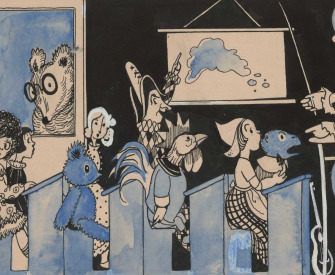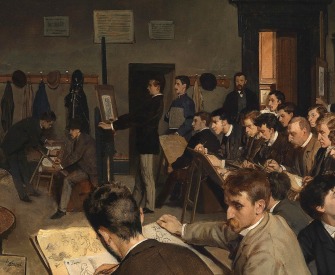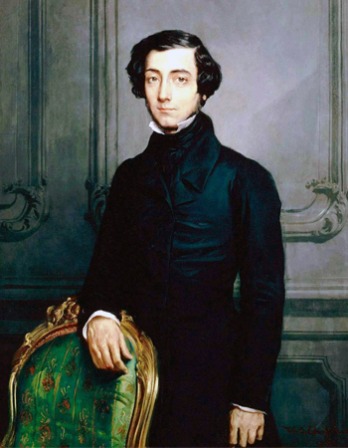Traveling is like flirting with life. It’s like saying, “I would stay here and love you, but I have to go; this is my station.”
—Lisa St. Aubin de Terán, 1989Hotel Rooms
Frederick Law Olmsted travels through the back country.
Vicksburg, March 18
I arrived at this place last night about sunset and was told that there was no hotel in the town except on the wharf boat, the only house used for that purpose having been closed a few days ago on account of a difference of opinion between its owner and his tenant.
There are no wharves on the Mississippi, or any of the Southern rivers. The wharf boat is an old steamboat, with her paddle boxes and machinery removed and otherwise dismantled, on which steamboats discharge passengers and freight. The main deck is used as a warehouse, and in place of the furnace, has in this case a dram shop, a chandler’s shop, a forwarding agency, and a telegraph office. Overhead, the saloon and staterooms remain, and with the barroom and clerk’s office, kitchen and barber’s shop, constitute a stationary though floating hostelry.
Though there were fifty or more rooms, and not a dozen guests, I was obliged about twelve o’clock to admit a stranger who had been gambling all the evening in the saloon, to occupy the spare shelf of my closet. If a disposition to enjoy occasional privacy, or to exercise a choice in one’s roommates were a sure sympton of a monomania for incendiarism, it could not be more carefully thwarted than it is at all public houses in this part of the world.
Memphis, March 20
I reached here this morning in forty-eight hours by steamboat from Vicksburg—distance four hundred miles, many stoppages and against the current, fare ten dollars.
Here, at the “Commercial Hotel,” I am favored with an unusually good-natured roommate. He is smoking on the bed—our bed—now, and wants to know what my business is here, and whether I carry a pistol about me—also whether I believe that it isn’t lucky to play cards on Sundays, which I do most strenuously, especially as this is a rainy Sunday and his second cigar is nearly smoked out.
Being in a distant quarter of the establishment when a crash of the gong announced dinner, I did not get to the table as early as some others. The meal was served in a large, dreary room exactly like a hospital ward—and it is a striking illustration of the celerity with which everything is accomplished in our young country that beginning with the soup, and going on by the fish to the roasts, the first five dishes I inquired for, when at last I succeeded in arresting one of the Negro boys, were “all gone,” and as the waiter had to go to the head of the dining room or to the kitchen to ascertain this fact upon each demand, the majority of the company had left the table before I was served at all. At length I said I would take anything that was still to be had, and thereupon was provided immediately with some grimy bacon and greasy cabbage. This I commenced eating, but I no sooner paused for a moment, than it was suddenly and surreptitiously removed, and its place supplied, without the expression of any desire on my part, with some other Memphitic chef d’oeuvre, a close investigation of which left me in doubt whether it was that denominated “sliced potato pie,” or “Irish pudding.”
I congratulate myself that I have lived to see the day in which an agitation for reform in our “Great Hotel System” has been commenced, and I trust that a Society for the Revival of Village Inns will ere long form one of the features of the May anniversaries.
A stagecoach conveyed the railroad passengers from the hotel to the station, which was a mile or two out of town. As we were entering the coach, the driver observed with a Mephistophelean smile that we “needn’t calculate we were gwine to ride very fur”; and accordingly, as soon as we had got into the country, he stopped and asked all the men passengers to get out and walk, for, he added, “it was as much as his hoses could do to draw the ladies and the baggage.” It was quite true; the road was so bad that the horses were obliged to stop frequently with the diminished load, and as there was a contract between myself and the proprietors by which—for a stipulated sum of money by me to them in hand duly paid—they promised to convey me, as well as my little baggage, I thought it would have been no more than honest if they had looked out beforehand to have either a stronger team, or a better road, provided. As is the custom of our country, however, we allowed ourselves to be thus robbed and forced to tiresome labor with great good nature, and waded along through mud ankle-deep, joking with the driver and ready to put our shoulders to the wheels if it should be necessary. Two pieces of our baggage were jerked off in heavy lurches of the coach; the owners picked them up and carried them on their shoulders till the horses stopped to breathe again. The train of course had waited for us, and it continued to wait until another coach arrived, when it started twenty minutes behind time.
After some forty miles of rail, nine of us were stowed away in another stagecoach. The road was bad, the weather foul. We proceeded slowly, were often in imminent danger of being upset, and once were all obliged to get out and help the horses draw the coach out of a slough; but with smoking, and the occasional circulation of a small black bottle—and a general disposition to be as comfortable as circumstances would allow—four hours of stagecoaching proved less fatiguing than one of the smoky railcars.

Frederick Law Olmsted
From A Journey in the Back Country. The New York Times in 1852 assigned Olmsted to travel the South to report on the economic effects of slavery. He became the chief architect for Manhattan’s Central Park in 1858, the success of that enterprise earning him other similar design projects, among them Prospect Park in Brooklyn and Mount Royal Park in Montreal.




